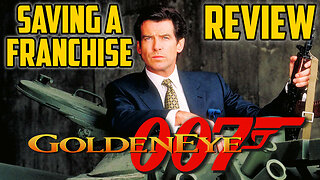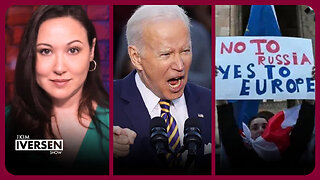WW1 Fighting for Democracy: Lusitania and British concentration camps
The British Camps - the British, not the Nazis, pioneered the concentration camp.
During the Second Boer War (1899–1902), they set up a network of camps in which conditions were so grim that over twenty-two thousand children under the age of sixteen died of starvation and disease.
During World War I, the United Kingdom used concentration camps to control those they could not or would not bring before the courts: men who had committed no offense besides belonging to the wrong nationality or ethnic group. Among these were Germans and Austrians living in Britain as well as Irish citizens suspected of disloyalty to the crown.
A century ago, no one hesitated to call concentration camps by their correct name. On December 4, 1914, for instance, the Manchester Guardian carried the headline “Disorder at Lancaster Concentration Camp.” The article described a bayonet charge by troops to restore order among the German civilians detained in the camp.
https://www.jacobinmag.com/2017/05/uk-concentration-camps-wwii-poland-internment-prisoners
May 7th is the 100th anniversary of the sinking of the Lusitania – the pre-fabricated murderous PR stunt designed to enrage the American people and drag them into the banksters’ World War I. A few decades later, Pearl Harbor, orchestrated by FDR’s 8-point plan, would use similar emotionally-evocative disaster images to drag America into World War II. And then in September of 2001, more disaster images were manufactured to sell us on the banksters’ World War III pitting Zionism against Islam.
newly released government papers. They contain Foreign Office concerns that a 1982 salvage operation might "literally blow up on us" and that "there is a large amount of ammunition in the wreck, some of which is highly dangerous".
Yet the truth was kept hidden in 1915 because the British government wanted to use the sinking of a non-military ship, and the loss of 1,198 lives, as an example of German ruthlessness. It was also a useful means of swaying American opinion in favour of entering the war. It eventually had the desired effect – the US declared war on Germany in April 1917 – but the lie continued as successive governments, worried about their ongoing relations with America, denied there were munitions on board.
These wartime lies are inevitable. The perpetrators – politicians, civil servants and soldiers – would argue that the end justifies the means, and that information that assists the enemy must remain secret. After the conflict, however, it's all about protecting reputations.
Take the case of the Sèvres protocol, the secret deal between the governments of Israel, France and the UK to topple President Nasser of Egypt by launching a two-step invasion in 1956 (otherwise known as "the Suez crisis"). Although reports of the deal leaked out within days, Sir Anthony Eden, the British prime minister, always denied its existence and even sent a civil servant to France to collect all copies and leave no trace. Yet the proof of Eden's engineered war remained buried until 1996 when a BBC documentary on the 40th anniversary of the Suez crisis obtained a copy from a former head of the Mossad (Israel's foreign intelligence service).
https://www.theguardian.com/commentisfree/2014/may/01/lusitania-secrets-of-war-revealed-sinking
James Perloff, author of the bestselling Truth Is a Lonely Warrior, fills us in on the details about how almost 2,000 people were slaughtered on May 7th, 1915 when the Lusitania – the world’s biggest ship when it was built – was filled to the brim with armaments and explosives, loaded with unsuspecting passengers, and deliberately sent straight into the path of a German U-Boat.
https://www.veteranstodayarchives.com/2015/05/06/truth-jihad-lusitania-false-flag/
WW1 Ottoman Oil fields and Millions Dead.
Sir Maurice Hankey: "Control of these resources becomes a first-class war aim"
During World War I (1914-18), strategists for all the major powers increasingly perceived oil as a key military asset, due to the adoption of oil-powered naval ships, new horseless army vehicles such as trucks and tanks, and even military airplanes. Use of oil during the war increased so rapidly that a severe shortage developed in 1917-18.
The strategists also understood that oil would assume a rapidly-growing importance in the civilian economy, making it a vital element in national and imperial economic strength and a source of untold wealth to those who controlled it. Already in the United States, John D. Rockefeller, founder of Standard Oil Company, was the world's richest person.
The British government, ruling over the largest colonial empire, already controlled newly-discovered oil in Persia (now Iran) through the Anglo-Persian Oil Company. Since Britain lacked oil in the home islands, British strategists wanted still more reserves to assure the future needs of their empire. An area of the Ottoman Empire called Mesopotamia (now Iraq), shared the same geology as neighboring Persia, so it appeared especially promising.
Just before war broke out in 1914, British and German companies had negotiated joint participation in the newly-founded Turkish Petroleum Company that held prospecting rights in Mesopotamia. The war ended the Anglo-German oil partnership and it exposed the territories of the German-allied Ottoman Empire to direct British attack.
As war continued, oil seemed ever more important and shortages ever more menacing to the imperial planners. Sir Maurice Hankey, powerful Secretary of the British War Cabinet, wrote to Foreign Secretary Arthur Balfour during the war's final stage, to argue that oil had become absolutely vital to Britain and that oil resources in Mesopotamia would be crucial in the future. "Control of these oil supplies becomes a first-class war aim" Hankey said enthusiastically, as British troops closed in on Baghdad. (1)
https://archive.globalpolicy.org/component/content/article/185-general/40479-great-power-conflict-over-iraqi-oil-the-world-war-i-era.html
Mussolini was paid £ 6000 a week by MI5
https://www.theguardian.com/world/2009/oct/13/benito-mussolini-recruited-mi5-italy
Perversion Of 1918 WW1 Armistice Centenary– Inspection of history over the last 1,000 years instructs that the British have invaded 193 countries, Australia 85, France 82, the US 72 (52 after WW2), Germany 39, Japan 30, Russia 25, Canada 25, Apartheid Israel 12, China 2 and North Korea arguably none.
https://countercurrents.org/2018/11/10/jingoistic-perversion-of-1918-ww1-armistice-centenary-humanity-ignored-yields-genocidal-history-repeated/
On Armistice Day, we had the luxury of remembering the Great War – while Palestinians are still living its consequences
https://www.independent.co.uk/voices/palestine-israel-gaza-armistice-day-great-war-first-world-war-a8634811.html
The crimes of Winston Churchill
https://crimesofbritain.com/2016/09/13/the-trial-of-winston-churchill/
"FUTILE" is the word that best describes the judgment presented to the British public regarding the First World War. Britain's intervention in 1914 was "nothing less than the greatest error of modern history,"
https://www.theatlantic.com/magazine/archive/1999/05/was-the-great-war-necessary/377605/
Women worked long hours, often in poor conditions and with dangerous chemicals. The so-called 'canaries' were women who worked
with TNT, which gave them toxic jaundice and turned their skin yellow.
Youngest British soldier was 12 years old.
WW1 nearly caused a financial meltdown in Britain. For example, the cost of bullets fired in one 24 hour period in September 1918 was nearly £ 4 million.
http://www.bbc.co.uk/history/0/26936615
Nearly one hundred years after it was first issued, the UK Government has announced that it will repay all of the nation's World War One debt.
https://www.forbes.com/sites/timworstall/2014/12/03/the-uk-government-is-not-about-to-pay-off-all-world-war-one-debt-dont-be-ridiculous/#5e379c3a4e16
Britain’s wartime Premier Sir Winston Churchill was also a Freemason.
https://www.mirror.co.uk/news/uk-news/how-secret-group-freemasons-kept-6886802
The German Austrian Hungarians needed to build their railway through Serbia to access the Ottoman Oil fields. Britain, France and Russia needed to stop them. The Balfour Declaration The British army occupied Jerusalem on Sunday, 9 December 1917.
Britain neglected to observe the Declaration's final clause: "that nothing shall be done which may prejudice the civil and religious rights of the existing non-Jewish communities in Palestine or the rights and political status enjoyed by Jews in any other country".
https://www.theguardian.com/books/2001/may/31/londonreviewofbooks
British Colonial Secretary Lord Cavendish wrote about agreement and its result in a 1923 memorandum to the British Cabinet, stating:
“The object [of the Balfour Declaration] was to enlist the sympathies on the Allied side of influential Jews and Jewish organizations all over the world… [and] it is arguable that the negotiations with the Zionists…did in fact have considerable effect in advancing the date at which the United States government intervened in the war.”
http://www.palestinechronicle.com/who-wrote-the-balfour-declaration-and-why-the-world-war-i-connection/
Sykes-Picot Agreement, also called Asia Minor Agreement, (May 1916), secret convention made during World War I between Great Britain and France, with the assent of imperial Russia, for the dismemberment of the Ottoman Empire. The agreement led to the division of Turkish-held Syria, Iraq, Lebanon, and Palestine into various French- and British-administered areas.
https://www.britannica.com/event/Sykes-Picot-Agreement
Palestinian Genocide that commenced with the WW1 British invasion of Palestine
https://www.veteranstoday.com/2018/11/11/vet-pal/
Germany gave a warning. So why was Lusitania full?
https://www.thestar.com/news/insight/2015/03/27/germany-gave-a-warning-so-why-was-lusitania-full.html
"It will be a war in which we risk almost everything of which we are proud, and in which we stand to gain nothing."
https://www.theguardian.com/world/2014/jun/27/guardian-1914-analysis-archduke-franz-ferdinand-shooting
The Moroccan ‘Crisis’
Docherty and Macgregor duly remind us that renowned historian Barbara Tuchman, in her Pulitzer-Prize winning book, ‘The Guns of August’, “made it very clear that Britain was committed to war by 1911 at the latest.” Indeed, preparations for war had proceeded apace since at least 1906.
Still, 1911 marked a turning point when the secret elite first made bold in attempting to ignite war with Germany. The pretext was Morocco. Now, truth to tell, Britain had no direct colonial interests in Morocco, but France and Germany did. By this time the cabal in London – with Edward Grey as Foreign Minister – had inducted a key French minister,
Theophile Declasse, into their confidences and were able to engineer what was essentially a false flag operation in Fez. France then followed this up with an army of occupation. Germany posted a minimalist response by sending a small gunboat to Agadir whence the entire British press – reflecting Britain’s ‘deep state’ interests – went into high hysteria condemning German ‘threats to British sea-lanes’ etc. The fuse to war was only snuffed out in the final hour when France’s (recently elected) socialist Premier, Joseph Caillaux, initiated peace talks with the Kaiser. War with Germany would have to wait.
In the meantime, Britain, under the direction of its secret mandarins – i.e. almost entirely beyond Parliamentary review or approval – continued their preparations for war. To this end, for example, Churchill, who by 1911 had been appointed First Lord of the Admiralty, redeployed the British Atlantic fleet from Gibraltar to the North Sea and the Mediterranean fleet to Gibraltar. Simultaneously, the French fleet was moved from the
Atlantic to cover Britain’s absence in the Mediterranean. These maneuvers were all strategically aimed at Germany’ North Sea navy. The pieces on the global chessboard were being positioned.
In France the leftist peacenik Caillaux was, in 1913, replaced as Premier with one of the British elites very own ‘helpers’ in the person of
Raymond Poincare, a right-wing, rabid Germanophobe. Poincare quickly acted to remove his anti-war ambassador to Russia, George Louis, and substitute him with the revanchist Declasse. Meanwhile in America the secret cabal, acting largely through the Pilgrims Society and through the Houses of Morgan and Rockefeller, machinated to have an unknown but pliable democrat, Woodrow Wilson, elected over the publicly-controlled central bank advocate, President Taft. It was from this lofty perch that the Anglo-American ‘deep state’ launched the US Federal Reserve System, a private central bank dedicated from the get-go to funding the war against Germany.
The Balkan Sting
The simple tale repeated ad nauseam regarding the circumstances surrounding the assassination of Archduke Franz Ferdinand on June 28, 1914, so Docherty and Macgregor tell us, contains as little veracity as, say, the official version of the assassination of JFK two generations
later. Indeed, the structural similarities between the two – from the virtual total stand-down of security through to the clear evidence of state
complicity (in this case, starting in Serbia, but leading straight to London) – are remarkable. Suffice to say that there was a domino-like chain of events that then ensued – it’s just that the events weren’t driven by base human instincts and ineluctable forces beyond all human control as is commonly proffered, but rather by calculating minds and conspiratorial design.
Thus, immediately following the assassination, there was widespread international support for Austria-Hungary which was widely perceived
as the aggrieved party. Nevertheless, the usual suspects, having helped stage the murder in the first place, were able to deftly turn the
propaganda tables against both Austria and Germany by means of an ingenious ruse. Having secretly obtained the contents of the ‘Note’,
which contained Austria’s (reasonable under the circumstances) demands for Serbian contrition, the secret cabal were able to gain direct input into the crafting of the ‘Serbian Reply’. The ‘reply’, of course, was designed to be unacceptable to Austria. Simultaneously, France’s President, Poincare, decamped to Moscow to assure the Czar and his generals that, should Germany act to uphold its alliance responsibilities towards Austria, France would back Russia in launching a full scale European war. France, naturally, knew that England – or rather its elite imperial clique – was similarly committed to war. It was during this opportune moment, in fact, when Grey and Churchill connived to purchase the Anglo-Persian Oil Company so securing the necessary oil supplies for the British navy.
All the while Kaiser Wilhelm and Chancellor Bethmann were conspicuous in being the only statesmen genuinely seeking peace. Their subsequent vilification by hordes of appropriately housebroken historians thus rings with the same Orwellian tone as the present-day
establishment demonization of nations and individuals resisting the American Imperium.
https://www.unz.com/article/hidden-history-the-secret-origins-of-the-first-world-war/
The Lusitania, at the time it was sunk, was carrying six million pounds of ammunition. It was actually illegal for American passengers to be aboard a ship carrying munitions to belligerents. Almost two years before the liner was sunk, the New York Tribune (June 19, 1913) carried a squib which stated: "Cunard officials acknowledged to the Tribune correspondent today that the greyhound [Lusitania] is being equipped with high power naval rifles. ..." In fact, the Lusitania was registered in the British navy as an auxiliary cruiser. (Barnes, Harry E., The Genesis of the War,
Alfred Knopf, New York, 1926, p. 611.) In addition, the German government took out
large ads in all the New York papers warning potential passengers that the ship was carrying munitions and telling them not to cross the Atlantic on it. Those who chose to make the trip knew the risk they were taking. Yet the sinking of the Lusitania was used by clever propagandists to portray the Germans as inhuman slaughterers of
innocents. Submarine warfare was manufactured into a cause celebre to push us into
war. On April 6, 1917, Congress declared war. The American people acquiesced on
the basis that it would be a "war to end all wars.
It should be noted that Sir William Wiseman, the man sent by British Intelligence to
help bring the United States into the war, was amply rewarded for his services. He
stayed in this country after WWI as a new partner in the Jacob Schiff-Paul Warburg-
controlled Kuhn, Loeb bank.
World War I was a financial bonanza for the international bankers. But it was a
catastrophe of such magnitude for the United States that few even today grasp its
importance. The war reversed our traditional foreign policy of non-involvement and
we have been enmeshed almost constantly ever since in perpetual wars for perpetual
peace. Winston Churchill once observed that all nations would have been better off
had the U.S. minded its own business. Had we done so, he said, "peace would have
been made with Germany; and there would have been no collapse in Russia leading to
Communism; no breakdown of government in Italy followed by Fascism; and
Naziism never would have gained ascendancy in Germany." (Social Justice
Magazine, July 3, 1939, p. 4.)
For the father-in-law of Max Warburg's brother, Felix, was Jacob Schiff, senior
partner in Kuhn, Loeb & Co. (Paul and Felix Warburg, you will recall, were also
partners in Kuhn, Loeb & Co. while Max ran the Rothschild-allied family bank of
Frankfurt.) Jacob Schiff also helped finance Leon Trotsky. According to the New
York Journal-American of February 3, 1949: "Today it is estimated by Jacob's
grandson, John Schiff, that the old man sank about 20,000,000 dollars for the final
triumph of Bolshevism in Russia." (See Chart 6.)
Still another important financier of the Bolshevik Revolution was an extremely
wealthy Englishman named Lord Alfred Milner, the organizer a/id head of a. secret
organization called "The Round Table" Group which was backed by Lord Rothschild
(discussed in the next chapter
Lord Alfred Milner, wealthy Englishman and front man for the Rothschilds, served as
paymaster for the international bankers in Petrograd during the Bolshevik
Revolution. Milner later headed secret society known as The Round Table which was
dedicated to establishing a world government whereby a clique Of super-rich
financiers would control the world under the guise of Socialism. The American
subsidiary of this conspiracy is called the Council on Foreign Relations and was
started by. and is still controlled by Leftist international bankers
Warburg, engineered the establishment of the Federal Reserve System while on the
Kuhn Loeb payroll. Schiff's descendants are active in the Council on Foreign
Relations today.
Joseph Kraft (C.F.R.), however, tells us in Harper's of July 1958, that the chief agent
in the formal founding of the Council on Foreign Relations was "Colonel" House,
supported by such proteges as Walter Lippmann, John Foster Dulles, Allen Dulles and
Christian Herter. It was House who acted as host for the Round Table Group, both
English and American, at the key meeting of May 19, 1919, in the Majestic Hotel,
Paris, which committed the conspiracy to creation of the C.F.R
According to Quigley, the most important financial dynasties in America following
WWI were (in addition to Morgan) the Rockefeller family; Kuhn, Loeb & Company;
Dillon Read and Company and Brown Bros. Harriman. All were represented in the
C.F.R. and Paul Warburg was one of the incorporators. The Insider crowd which
created the Federal Reserve System, many of whom also bankrolled the Bolshevik
Revolution, were all in the original membership. In addition to Paul Warburg,
founders of the C.F.R. included international financial Insiders Jacob Schiff, Averell
Harriman, Frank Vanderlip, Nelson Aldrich, Bernard Baruch, J. P. Morgan and John
D. Rockefeller. These men did not create the C.F.R. because they had nothing better
to do with their time and money. They created it as a tool to further their ambitions.
The C.F.R. has come to be known as "The Establishment," "the invisible government"
and "the Rockefeller foreign office."
https://www.bibliotecapleyades.net/archivos_pdf/nonedarecallit_conspiracy.pdf
https://www.bibliotecapleyades.net/archivos_pdf/shadows-of-power.pdf
https://www.bibliotecapleyades.net/ciencia/ciencia_transhumanism38.htm
https://rense.com/general81/aidsre.htm
Professor Carroll Quigley (1910-1977) was the first to point out that the First World War was the result of the planning of a
highly secret group of five people, who began to plan it around 1890-1891. The five men were: Cecil Rhodes (1853-1902),
Alfred Milner (1854-1925), Nathaniel Rothschild (1840-1915), William Stead (1849-1912) and Lord Esher (Reginald Balliol Brett,
1852-1930). This was an extremely wealthy cabal (because the celibate Cecil Rhodes had left his fabulous wealth from the diamond
and gold of South Africa for the purpose for which the group was established) and called itself the Society of the Elect.
Around the Society of Elect was another larger circle known as the Association of Helpers who did not know of the existence of
the Society of the Elect. The setup has been referred to as the Secret Elite or the Roundtable Group or the Group, etc. Professor
Quigley was given access to the documents of the Secret Elite so that he could write a sanitized history for the global reading
public. Sanitized history is the key to mind control and mind control is the key to world control. Professor Quigley revealed
more than was expected of him, putting his own life in danger. In fact, his sudden death, at age 66, when he was in good health,
has always been regarded as suspicious. Carroll Quigley revealed deeply concealed information is his subsequently suppressed book:
Tragedy and Hope: A History of the World in Our Time, published in 1966. Gerry Docherty and Jim Macgregor have established
Quigley’s thesis beyond reasonable doubt in their book: Hidden History: The Secret Origins of the First World War, (Mainstream Publishers 2013).
https://www.veteranstoday.com/2021/07/14/why-was-world-war-ii-waged/
Cecil Rhodes, Alfred Milner and The Society of the Elect
The authors of The Hidden History, The Secret Origins of the First World War claim that it was Great Britain
that started World War One, and not Germany. It is a convincing story.
The authors George Docherty and James MacGregor call their book a conspiracy fact.
The story begins in the late 1800s. The British Empire ruled the seas. In 1870 a young Cecil John Rhodes
migrated to a British colony in southern Africa. After failing at farming he set out in pursuit of diamonds,
which had been discovered in a region of Southern Africa. With the financial backing of Nathan Mayer Rothschild,
the young Rhodes monopolized the diamond trade. He became fantastically wealthy and founded the De Beers diamond
company. In 1889 Rhodes was granted a royal charter for the British South Africa Company to colonize an area
later named Rhodesia.
Conspiracy Facts
The authors of the “Hidden History” uncovered many World War 1 documents, which lay the blame for WW1 on Rhodes’s secret society.
Authors George Docherty and James MacGregor built on the work of Georgetown University Professor Carroll Quigley’s book The
Anglo-American Establishment. Quigley wrote:
“One wintery afternoon in February 1891, three men were engaged in an earnest conversation in London. From that conversation were
to flow consequences of the greatest import to the British Empire and the world as a whole. For these men were organizing a
secret society that was, for more than fifty years, to be one of the most important forces in the formulation of British
imperialism and foreign policy.”
“The three men thus engaged were already well known in England. The leader was Cecil Rhodes, fabulously wealth empire builder
and the most important person in South Africa. The second was William T. Stead, the most famous, and probably the most sensational,
journalist of the day. The third was Reginald Baliol Brett, later known as Lord Esher, friend and confidant to Queen Victoria, and
later to be the most influential advisor to King Edward Vll, and King George V.”
The Boer War was a long and costly war for Britain. It marked the beginning of the decline of the British Empire. Rhodes
established his secret society of elites to reverse the decline. He named it The Society of the Elect.
By the turn of the 20th century, Germany was a rising power. It was outpacing Great Britain in industry, finance, science,
technology, commerce and culture. Germany was acquiring colonies and expanding its navy. The Society of the Elect
characterized every German advancement as an act of aggression. They conspired to start a war that would crush Germany,
so that the British Empire would remain supreme.
The Society of the Elect was organized as circles within circles. The inner circle was Cecil Rhodes, Alfred Milner, W. T. Stead, The
Viscount Esher, the Marquess Salsbury, Lord Rosebery, and Nathaniel Rothschild. King Edward VII was a central member, and after his
death in 1910, King George V was too. According to “Hidden History”:
“Stead was there to influence public opinion, and Esher acted as the voice of the King. Salisbury and Rosebery provided the political
networks, while Rothschild represented the international money power. Milner was the master manipulator, the iron-willed, assertive
intellectual who offered that one essential factor: strong leadership.”
The Society of the Elect had an outer circle, which they named the “Association of Helpers”. The Helpers were like-minded elites.
They were royalty, imperialists, financiers, greedy profiteers, war mongers, and egotistical and corrupt politicians. The Helpers
were willingly manipulated, often unknowingly, by the inner circle.
Some recruits to the Helpers were Jan Christian Smuts, Arthur Balfour, Edward Grey, Richard Haldane, H. H. Asquith, Lord Roberts,
David Lloyd George, Sir Edward Carson, Frederick Sleigh Roberts,
Alfred Harmsworth, and Winston Churchill.
During WW1 Churchill was among the most ruthless imperialists and warmongers. He is quoted as having said:
“I think a curse should rest on me, because I love this war. I know it’s smashing and shattering the lives of thousands every
moment— and yet I can’t help it— I enjoy every second of it.”
Books:
The Hidden History, The Secret Origins of the First World War, by George Docherty and James MacGregor
Prolonging the Agony: How The Anglo-American Establishment Deliberately Extended WWI by Three-and-a-Half Years, by Jim Macgregor and George Docherty
Lord Milner’s Second War: The Rhodes-Milner secret society; the origin of World War I; and the start of the New World Order, by John Cafferky
Deep State Exposed: A New Trans Pacific Alliance May Now Take Shape, by Mathew J. L. Ehret
Tragedy and Hope 101: The Illusion of Justice, Freedom, and Democracy, by Joseph Plummer
https://www.veteranstoday.com/2021/05/25/the-first-world-war-cecile-rhodes-and-conspiracy-facts/
#WhitePoppy #AntiWar #ClassWar
to now...
The 9 Largest Private Armies In The World. What Are They Fighting For?
https://www.insidermonkey.com/blog/the-9-largest-private-armies-in-the-world-what-are-they-fighting-for-179460/6/
~ClassWar ~AntiWar ~ BDS ~ History Anarchist @hatethemachine
-
 24:20
24:20
Brewzle
19 hours agoWe Went Unicorn Bourbon Hunting In Louisville, KY
4.42K2 -
 35:39
35:39
Degenerate Jay
17 hours agoGoldenEye 007 Saved James Bond - Movie Review
4.64K1 -
 14:54
14:54
Mr Reagan
17 hours agoWE ARE ALL MAGA NOW
5.44K21 -
 15:35
15:35
Space Ice
16 hours ago'The Beekeeper' Exposes The Dark, Gritty, & Violent World Of Apiculture - Best Movie Ever
4.13K13 -
 3:29:53
3:29:53
SonnyFaz
20 hours agoEric Kelly Trains Sonny FULL STREAM
5.38K7 -
 9:32
9:32
China Uncensored
10 hours agoBad Things Are Happening In Taiwan...
5.39K6 -
 38:24
38:24
Tucker Carlson
8 hours agoTucker Carlson and Donald Trump Jr. Respond to the Trump Verdict
65.9K368 -
 2:01:47
2:01:47
Fresh and Fit
8 hours agoAfter Hours w/ & Tommy Sotomayor
148K295 -
 34:19
34:19
Alexis Wilkins
14 hours agoBetween the Headlines with Alexis Wilkins: The Verdict and More
39.6K30 -
 1:11:21
1:11:21
Kim Iversen
14 hours agoWW3?!? Is The West Secretly Behind Another Color Revolution Aimed At Toppling Russia? | Biden Maniacally Bombs Yemen and Russia
85.2K67